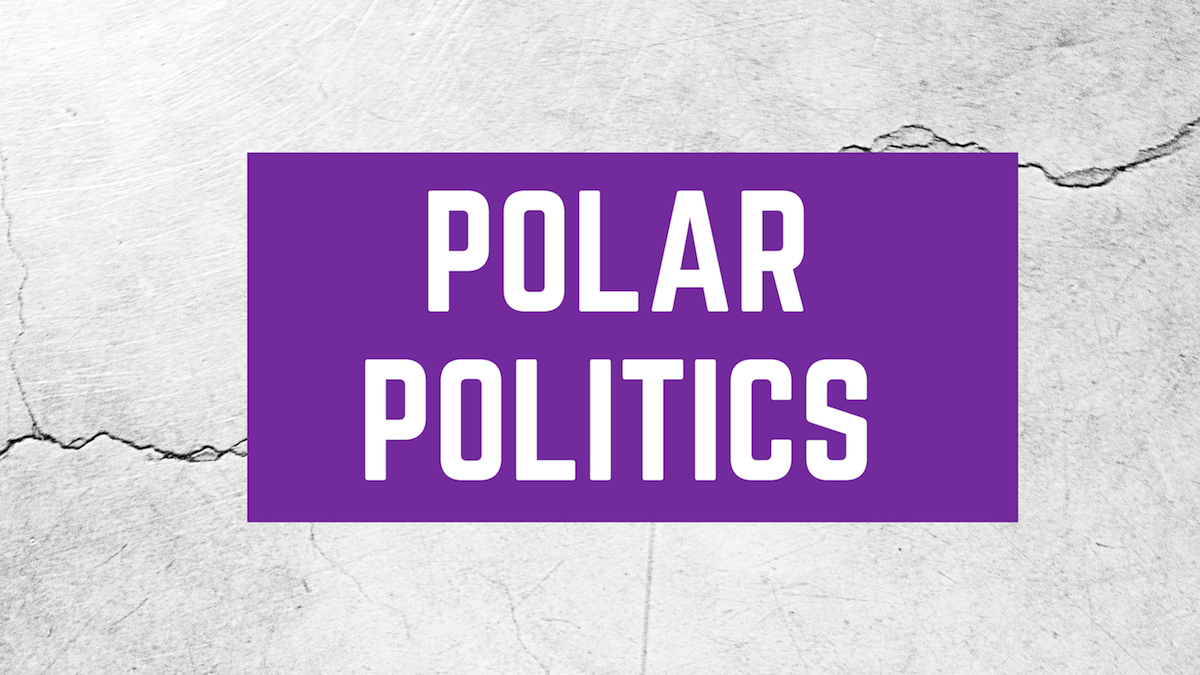Polar Politics: Discussing minimum wage
January 23, 2017
Keep it where it’s at
Showing up consistently in the United States’ political arena, politicians argue over whether to raise the minimum wage to a proposed $15. Over the span of the election season, candidates like Bernie Sanders argued for said wage increase. On the actual election day, several states voted to increase the minimum wage and several cities like D.C, New York and Seattle increased the minimum wage to $15 an hour. In conservative beliefs, the minimum wage must stay at its current state to bolster employment and decrease poverty.
The minimum wage currently rests comfortably at $7.25 nationally which, adjusted for the inflation rate, would place the accurate minimum wage at $7.24 as reported by CNN Money. Using this indicator, the minimum wage remains exactly where it should due to inflation rates to keep in pace with businesses and limit unemployment.
If the minimum wage increases, so will unemployment; no business will pay the insane rates required for a low skilled job. Reported by the Cato Institute in 2012, “The New York State minimum wage increase from $5.15 to $6.75 per hour found a ‘20.2 to 21.8 percent reduction in the employment of younger less-educated individuals.’”
In the same vein, job loss would exponentially hurt in the nation; just a $9.50 new wage would result in 1.3 million jobs lost across the U.S. only bolstered by new advances in technology through implementing self-service kiosks in replace of employees. The yearly salary of a minimum wage worker, $15,080, does not constitute an increase to a whopping number of roughly $31,000.
The current price to buy and maintain a new self-service kiosk, like McDonald’s has already begun to do, ranges from $3,000 to $20,000. Already that price burgeons with the current minimum wage and would dramatically increase by an insane price hike to $15 an hour. With per employee’s pay at $31,000 a year including time off or efficiency issues, the $15 minimum wage, and self-service kiosks having the sole cost of roughly $20,000 on the higher end using computer efficiency, the choice for businesses becomes clear.
Simple math can tell anyone that an increase in the minimum wage would benefit an extremely small amount of those who somehow manage to keep their jobs, not to mention the price hikes all businesses would implement to balance wage increases. It simply cannot result in a feasible solution to actually benefit the lower class in America. Seattle tried it and it failed miserably, with employment falling for the first time significantly since the recession.
Quieter arguments for a happy medium of $10.10 instead of $15; economists believe this compromise as more feasible, although still not a great alternative for the working class surviving off the minimum wage.
However, I propose to use a different system that does not inhibit the cost increase on business and instead make it the government’s responsibility to help those individuals below the poverty line, especially with families. The Earned Income Tax Credit (EITC) allows for government subsidies and tax credits accrediting 40% of the earned income back to impoverished families, which ideally will increase individual yearly income by roughly $5,548. The EITC shows actual progress on combating poverty and benefitting the families that truly need it in the United States.
Unfortunately, to left-wing politicians, hearing $15 seems much more exciting.
Living on borrowed time
In the beginning of a presidency which notoriously avoids expressing concrete opinions on the minimum wage, conversation in this issue now matters more than ever. Experts, government policymakers, and activists alike have seen this need, writing articles debunking claims about raising the minimum wage.
These advocates claim not only that a minimum wage raise must be necessary, but that it will not bring on the consequences that minimum-wage-objectors claim will come from a raise to $12 or $15 and hour. They claim that at the level of other postindustrial countries, our minimum wage would pay $12 an hour, instead of the current $7.25. In fact, the majority of states already have minimum wages higher than the federal level with few negative consequences. However, as I mentioned, dozens, if not hundreds, of these articles already exist, so I suspect one more would make no difference. Instead, I would like to expose a deeper, more central flaw to the arguments of opponents of the minimum wage raise, one that exists even assuming the validity all of their claims.
According to the U.S. Department of Labor, teenagers make up only 11% of federal minimum wage workers, which means that an ever-increasing number of households rely on minimum wage jobs to put food on the table, clothes on their backs, and shoes on their children’s feet. Minimum wage work no longer solely, or even primarily, benefits teenagers and high-school dropouts.
When established by the Fair Labor Standards Act (FSLA) in 1938, the minimum wage amount fluctuated. Instead, “employers and employees in any trade or industry… [should] establish by mutual agreement… minimum rates of pay.” Even if inflation did not exist, and $7.25 would stay $7.25 no matter how far in the future one looks, a family cannot buy food, clothes, and education on seven dollars and twenty-five cents. The purpose of the minimum wage has shifted, and so must the minimum wage as well.
Notice though, how I said “if inflation did not exist” when describing a situation in which the intentions of the minimum wage would carry on into the present. This distinction underpins the most pressing reason for raising the minimum wage: the simple reality of economic inflation.
In 1938, $7.25 would buy about what $124.10 would buy today. Conversely, the FLSA’s minimum wage of $0.25 would buy approximately $4.28 worth of goods and services in 2017. Those numbers resist comparison, though; the difference in the $4.28 (really $0.25) of 1938 and the $7.25 of 2009 comes from the great change in standards of living. Life improved over that time, and so too did the cost, adjusted for inflation, of maintaining that life. The raise in the standards of living can exacerbate the absolutely massive effects on inflation over time. Inflation — the gradual decrease in the buying power of an individual dollar — must occur for an economy to grow. Over enough time, any amount of money becomes worth less and less, until the price of a couch in one time could only buy a chicken sandwich in another.
So the question lies not in whether to raise the minimum wage, but when? If the average price of the dollar continues to decrease and Congress takes no action, $7.25 will scarcely buy more than a single toothpick. Now of course, that day lies far in the future, but it demonstrates the inevitability of a raise in the minimum wage. After all, imagine the absolute poverty if today’s minimum wage still payed the twenty-five cents of 1938!
Raising the minimum wage comes inevitably, and Congress has legislated in accordance with this certainty time and time again. However, treating a raised minimum wage as historical inevitability can be harmful to those most vulnerable, as waiting for a solution in the future only harms those in the present.
With high levels of poverty and economic devastation coming out of the 2008 financial crisis, the United States must take action to improve the lives of common workers now, not next year, or the year after that, or decades in the future.
Easily replaced, minimum-wage workers must accept whatever wage and working conditions their employers offer, no matter how awful or how small — what experts call “wage stagnation.” This not only creates massive wealth inequality, but also keeps wages artificially low for employers.
As I established earlier, most minimum wage workers must support a family on their wages, and so this creates a situation where massive numbers of people must work two or three jobs to put food on the table.
The U.S. cannot wait to raise the minimum wage until some far-off future date; it must act in the present to alleviate the crippling poverty and income inequality that plagues this nation. In the words of President John F. Kennedy: “If not us, who? If not now, when?”


